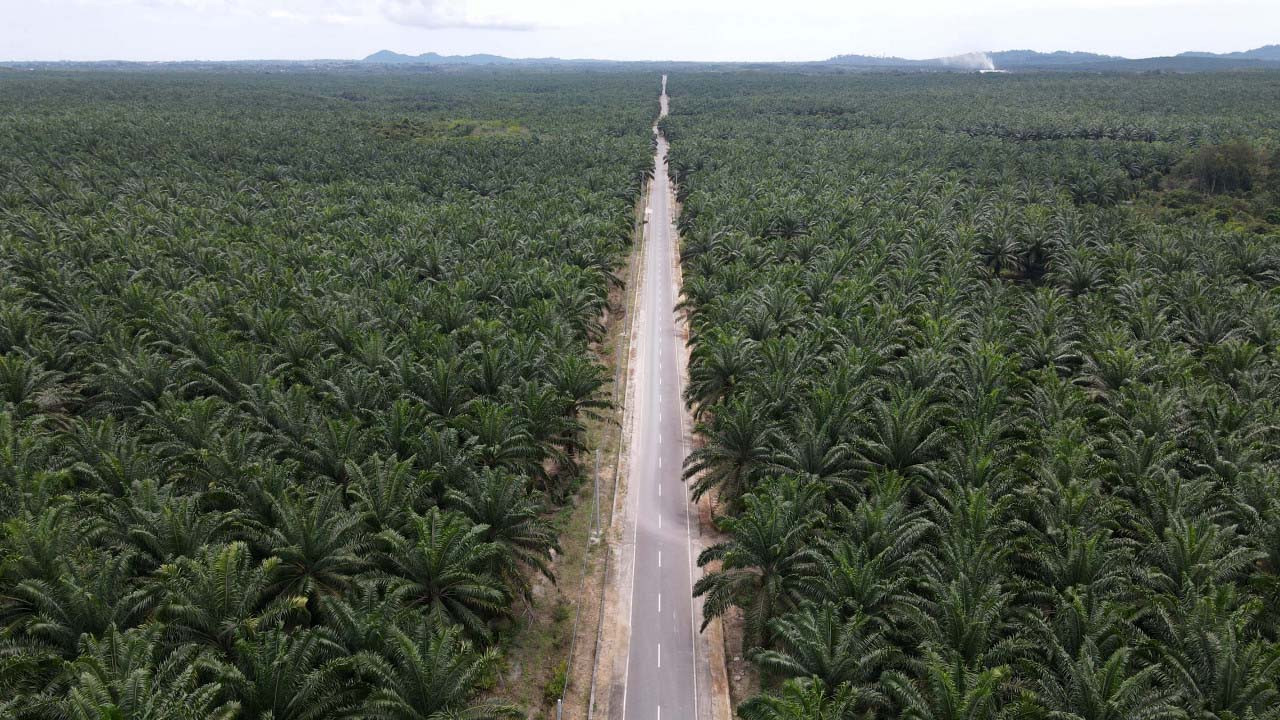Popular Reads
Top Results
Can't find what you're looking for?
View all search resultsPopular Reads
Top Results
Can't find what you're looking for?
View all search resultsTwo years on, ban on new palm oil plantations brings little change
Change text size
Gift Premium Articles
to Anyone
I
t has been over two years since the government set a moratorium on new palm oil development, but environmentalists say the move has failed to bring about much-needed change in the governance of the lucrative export commodity.
A coalition of civil society groups said recently that the plantation ban had not resulted in significant improvements in the sustainability of the palm oil business or its impact on the environment.
In September 2018, President Joko “Jokowi” Widodo issued an executive order to suspend the granting of new licenses for oil palm concessions and ordered a review of existing plantations.
If the ban and the reviews were carried out in accordance with Presidential Instruction (Inpres) No. 8/2018, the process was expected to help clear up uncertainty about the rights of smallholders and boost productivity on existing plantations.
But more than two years later, the order has yet to be properly implemented, despite signs that the government wants the palm oil industry to be more sustainable, said Teguh Surya, chairman of the Madani Foundation, an environmental NGO.
Based on an analysis by Madani, only one provincial and three regency administrations have issued follow-up regulations; five provinces and five regencies have shown clear commitments to implementing the ban; and another 19 provinces and 239 regencies have yet to take any action.
This has contributed to slow progress in implementing the Inpres and other relevant provisions, including Presidential Regulation (Perpres) No. 44/2020 on the Indonesian Sustainable Palm Oil certification.
“These two regulations are closely related to one another. The latter could not be implemented correctly because of the lacking implementation of the former. Meanwhile, being sustainable is vital for palm oil to be able to compete in the global market,” Teguh told The Jakarta Post this week.
With the expansion of plantations starting in the 1990s, palm oil has been blamed for deforestation and loss of biodiversity. The crop is Indonesia’s second-biggest export and the most efficiently produced vegetable oil.
As the world’s top palm oil producer, Indonesia has regularly touted the commodity as a solution to the country’s gaping trade deficit, as well as a livelihood for millions of smallholders.
Read also: Indonesia's palm oil sector relies on domestic demand as exports drop
According to official data, there were 16.38 million hectares of palm oil concessions in the country as of 2019.
However, Teguh said the actual number might be higher and that the state had only managed to provide data from the Agriculture Ministry in the two years since the moratorium.
Data compiled by Madani from various sources shows that there could be up to 31.1 million ha of palm oil concessions and that 8.4 million hectares are unaccounted for by valid permits.
Forest Watch Indonesia campaign lead Agung Ady Setyawan also criticized the lack of comparative and actual data on oil palm concessions.
“The state only wants to publish the total area of oil palm concessions without indicating other attributes [such as ownership and status]. This has made it difficult for us to supervise,” Agung told the Post earlier this week.
Without the proper attribution and mapping of plantations, it is difficult for observers to determine the locations of plantations and identify possible overlap.
The lack of transparency in oil palm plantation data, Agung said, made it hard for environmentalists to determine whether the moratorium had contributed to deforestation amid recent findings that deforestation rates had slowed.
The government is finalizing its highly anticipated One Map Policy, an integrated data map that aims to eliminate overlapping data and unify disparate mapping methods from various institutions. The project is expected to be complete by December 2020.
Read also: Concerns of transparency, inclusivity raised as One Map nears completion
Meanwhile, deliberations between the government and the House of Representatives over the omnibus bill on job creation may complicate the goal of palm oil sustainability, given proposals in the bill that would loosen environmental protections.
Indonesian Center for Environmental Law researcher Adrianus Eryan said the government should instead try to improve business practices in the palm oil industry by making sense of the available data, evaluating all existing permits and accurately measuring palm oil productivity.
“The good initiative [of the moratorium] has barely run its course and the government is already trying to pass an omnibus bill that doesn’t fix the core problem [with palm oil],” Adrianus said.
Palm oil productivity has not improved by much despite an ambitious target set by palm oil companies in 2011 to produce 9 tons per hectare per year by 2020. According to Statistics Indonesia (BPS), productivity was only 3.2 tons per hectare per year in 2019.










